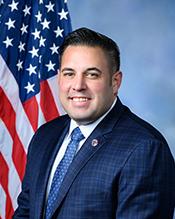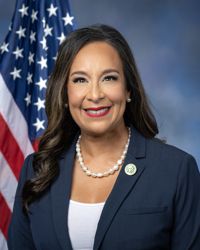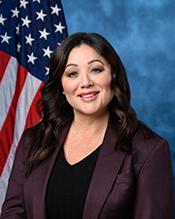0
0
0
Protecting Social Security and Medicare Act
12/21/2024, 9:05 AM
Summary of Bill HR 875
Bill 118 HR 875, also known as the Protecting Social Security and Medicare Act, was introduced in the US Congress with the aim of safeguarding two of the most important social welfare programs in the country. The bill seeks to ensure the long-term sustainability of Social Security and Medicare by making necessary adjustments to their funding and administration.
One key provision of the bill is the establishment of a Social Security and Medicare Trust Fund, which would be dedicated solely to funding these programs. This fund would be separate from the general federal budget, ensuring that the money collected for Social Security and Medicare is used exclusively for their intended purposes.
Additionally, the bill includes measures to increase revenue for Social Security and Medicare, such as raising the payroll tax cap to ensure that higher-income individuals contribute their fair share. The bill also aims to reduce waste and fraud in the programs, improving their efficiency and effectiveness. Overall, the Protecting Social Security and Medicare Act is a comprehensive piece of legislation that seeks to strengthen and protect these vital social welfare programs for current and future generations. It addresses key issues related to funding, administration, and sustainability, with the goal of ensuring that Social Security and Medicare remain viable and accessible to all Americans.
One key provision of the bill is the establishment of a Social Security and Medicare Trust Fund, which would be dedicated solely to funding these programs. This fund would be separate from the general federal budget, ensuring that the money collected for Social Security and Medicare is used exclusively for their intended purposes.
Additionally, the bill includes measures to increase revenue for Social Security and Medicare, such as raising the payroll tax cap to ensure that higher-income individuals contribute their fair share. The bill also aims to reduce waste and fraud in the programs, improving their efficiency and effectiveness. Overall, the Protecting Social Security and Medicare Act is a comprehensive piece of legislation that seeks to strengthen and protect these vital social welfare programs for current and future generations. It addresses key issues related to funding, administration, and sustainability, with the goal of ensuring that Social Security and Medicare remain viable and accessible to all Americans.
Congressional Summary of HR 875
Protecting Social Security and Medicare Act
This bill authorizes Medicare and Social Security payments to be made in full even if the federal debt limit is reached. Such payments do not count against the debt limit until after the debt limit has been raised by authorizing legislation.
Read the Full Bill
Current Status of Bill HR 875
Bill HR 875 is currently in the status of Bill Introduced since February 8, 2023. Bill HR 875 was introduced during Congress 118 and was introduced to the House on February 8, 2023. Bill HR 875's most recent activity was Referred to the Subcommittee on Social Security. as of December 17, 2024
Bipartisan Support of Bill HR 875
Total Number of Sponsors
2Democrat Sponsors
0Republican Sponsors
2Unaffiliated Sponsors
0Total Number of Cosponsors
3Democrat Cosponsors
0Republican Cosponsors
3Unaffiliated Cosponsors
0Policy Area and Potential Impact of Bill HR 875
Primary Policy Focus
HealthAlternate Title(s) of Bill HR 875
Protecting Social Security and Medicare Act
Protecting Social Security and Medicare Act
To authorize the Secretary of the Treasury to issue obligations to make Medicare and Social Security payments, despite the debt limit being reached.
Comments
Sponsors and Cosponsors of HR 875
Latest Bills
Ensuring VetSuccess On Campus Act of 2025
Bill S 610December 12, 2025
Leech Lake Reservation Restoration Amendments Act of 2025
Bill S 622December 12, 2025
Tribal Forest Protection Act Amendments Act of 2025
Bill S 719December 12, 2025
Tribal Trust Land Homeownership Act of 2025
Bill S 723December 12, 2025
Wounded Knee Massacre Memorial and Sacred Site Act
Bill HR 165December 12, 2025
Miccosukee Reserved Area Amendments Act
Bill HR 504December 12, 2025
PERMIT Act
Bill HR 3898December 12, 2025
Increasing Investor Opportunities Act
Bill HR 3383December 12, 2025
Providing for consideration of the bill (H.R. 2550) to nullify the Executive Order relating to Exclusions from Federal Labor-Management Relations Programs, and for other purposes.
Bill HRES 432December 12, 2025
CLEAR Act
Bill HR 4218December 12, 2025
Keep Our Promises Act
Bill S 213December 15, 2023
Protecting American Benefits Act
Bill HR 3157January 10, 2024



